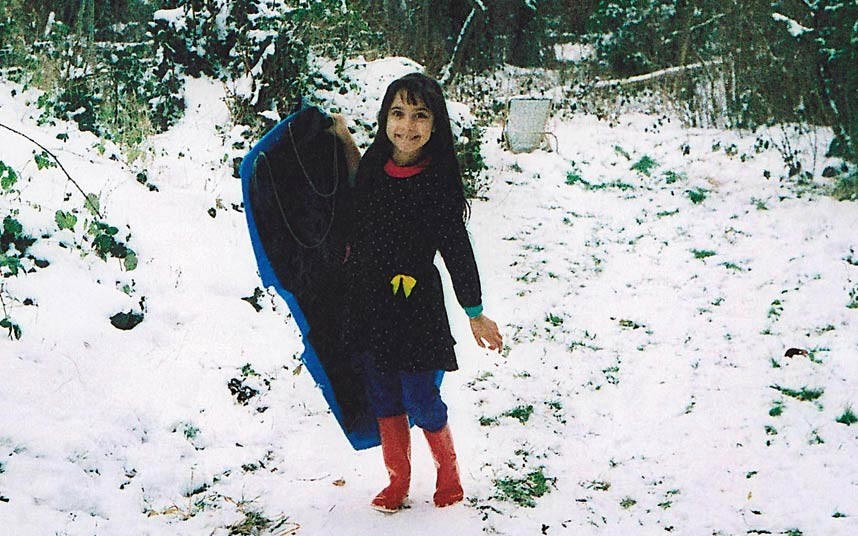
Category: The psychology
Thursday, December 26, 2013
Meredith And Her Understanding Of The Power Of Good Thoughts
Posted by SeekingUnderstanding

“How far that little candle throws his beams! So shines a good deed in a weary world. (William Shakespeare, The Merchant of Venice)
One of the most disturbing and disheartening features of this serious case has been the influence, mob-like, of malevolent misinformation and mantras that the defence has spread among their followers.
In this season of generosity and goodwill, it would be good to remember the power, also, of good thoughts.
They, too, can gather strength - the more people think them, and share them with others. The more people hold out for reason and justice (as well as compassion where appropriate), the more a momentum will be generated, and will help reason prevail.

I have often heard fragments of this poem below quoted. It speaks of this power of good thoughts, and I found the whole poem, written by the American, Henry Van Dyke (from Pennsylvania, born 1854) :
“Thoughts Are Things” by Henry Van Dyke
I hold it true that thoughts are things;
They’re endowed with bodies and breath and wings;
And that we send them forth to fill
The world with good results, or ill.That which we call our secret thought
Speeds forth to earth’s remotest spot,
Leaving its blessings or its woes
Like tracks behind it as it goes.We build our future, thought by thought,
For good or ill, yet know it not.
Yet, so the universe was wrought.
Thought is another name for fate;
Choose, then, thy destiny and wait.
For love brings love and hate brings hate.”

Mrs. Mazzeo, who was Meredith ‘s teacher, remembers Meredith in Year Thirteen :
“When she was in Year Thirteen, the modern languages and music departments at the school collaborated in a cross-curricular activity called ‘Light and Dark’.
This was intended to celebrate the music and poetry of the respective languages studied at the school. The Italian department contributed with three readings from Dante’s Divine Comedy. Meredith was due to read one extract only, in Italian, from Paradiso.
But a younger girl, who was due to deliver the Purgatorio reading, had a panic attack a few minutes before she was due to read, and so was unable to participate. In a very calm way, Meredith took over this reading and read it perfectly, without any practice at all.”
Rabindranath Tagore was a prolific Indian writer, poet and musician who was born in 1861. An inclusive school he founded is now one of the great universities in India. He was very aware of the power of thought and presence:
‘The unuttered words in the vast mind of Man
Wander through space like nebulae.
Striking against the boundary of my mind,
They condense, take form,
And revolve around my study.’
(5th December 1940, Morning).
Like many Indians he seemed to have an innate appreciation of the role suffering often plays in life. Here he wonders about suffering and pain :
‘From what workshop of suffering,
From what threshold of inflamed consciousness,
Come the darts of pain
And the bleeding wound?
Tiny is man’s body,
But how infinite his power of suffering!
In the world of Creation and Destruction,
Why does blood-red madness
Drench the earthen vessel of the body
With tears?’
(4th November 1940).‘Nobody knows at what corner of the Universe
Is gathering every moment relentless Unforgivingness.
A fault lying hidden snaps the string
That binds all things together.
One mistake in the flash that gives the signal,
And the way for retreat is barred for ever.’
(13th November 1940)

‘Life is suffering’ is often a starting point - and one wonders - is it not precisely because of this that some of those of Indian origin will emanate a gentle strength, and go that extra mile to give and spread happiness wherever they can?
As if saying : ‘no more suffering…just for a Moment…there is already enough.’
We have another extract from John Kercher’s book, which indicates that Meredith had this quality. This is from Jayne Moore, who had employed her in the summer of 2007 :
“She was charming, because she was so unaffected and natural, and seemed to be happy all the time. She reminds me of the last few lines of a poem by Philip Larkin,.....The poem is called “Born Yesterday”, and the last lines describe
:
.... what a skilled,
Vigilant, flexible,
Unemphasised, enthralled
Catching of happiness is called.And I think that is what Meredith showed to the people who knew her and worked with her.”
It must be with very heavy and sorrowful hearts that Meredith’s family and close friends approach the 28th December which would have been Meredith’s 28th birthday. She would have been four or five years by now into what looked like a momentous career.
We all sincerely hope that that whatever transpires at the Florence court in the New Year, knowing that Meredith has attracted the support of millions will go some way to lighten their path ahead.

